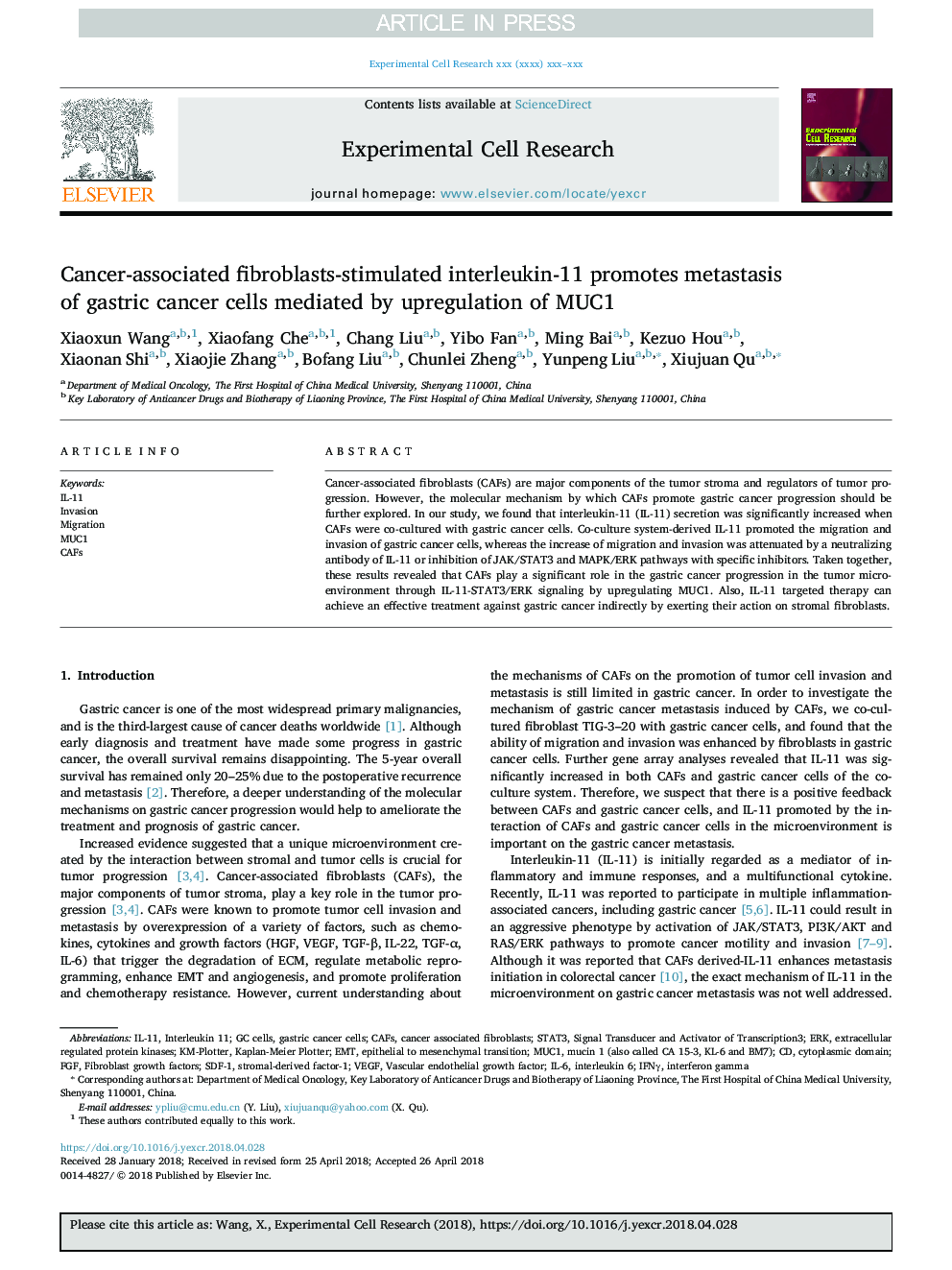| Article ID | Journal | Published Year | Pages | File Type |
|---|---|---|---|---|
| 8450488 | Experimental Cell Research | 2018 | 10 Pages |
Abstract
Cancer-associated fibroblasts (CAFs) are major components of the tumor stroma and regulators of tumor progression. However, the molecular mechanism by which CAFs promote gastric cancer progression should be further explored. In our study, we found that interleukin-11 (IL-11) secretion was significantly increased when CAFs were co-cultured with gastric cancer cells. Co-culture system-derived IL-11 promoted the migration and invasion of gastric cancer cells, whereas the increase of migration and invasion was attenuated by a neutralizing antibody of IL-11 or inhibition of JAK/STAT3 and MAPK/ERK pathways with specific inhibitors. Taken together, these results revealed that CAFs play a significant role in the gastric cancer progression in the tumor microenvironment through IL-11-STAT3/ERK signaling by upregulating MUC1. Also, IL-11 targeted therapy can achieve an effective treatment against gastric cancer indirectly by exerting their action on stromal fibroblasts.
Keywords
Stromal-derived factor-1IL-6IL-11CAFsSDF-1FGFERKMUC1IFNγSTAT3epithelial to mesenchymal transitionInterleukin 11interleukin 6InvasionEMTcytoplasmic domainGastric cancer cellsFibroblast Growth FactorsVascular endothelial growth factorVascular Endothelial Growth Factor (VEGF)Cancer associated fibroblastsMigrationextracellular regulated protein kinasesInterferon gamma
Related Topics
Life Sciences
Biochemistry, Genetics and Molecular Biology
Cancer Research
Authors
Xiaoxun Wang, Xiaofang Che, Chang Liu, Yibo Fan, Ming Bai, Kezuo Hou, Xiaonan Shi, Xiaojie Zhang, Bofang Liu, Chunlei Zheng, Yunpeng Liu, Xiujuan Qu,
